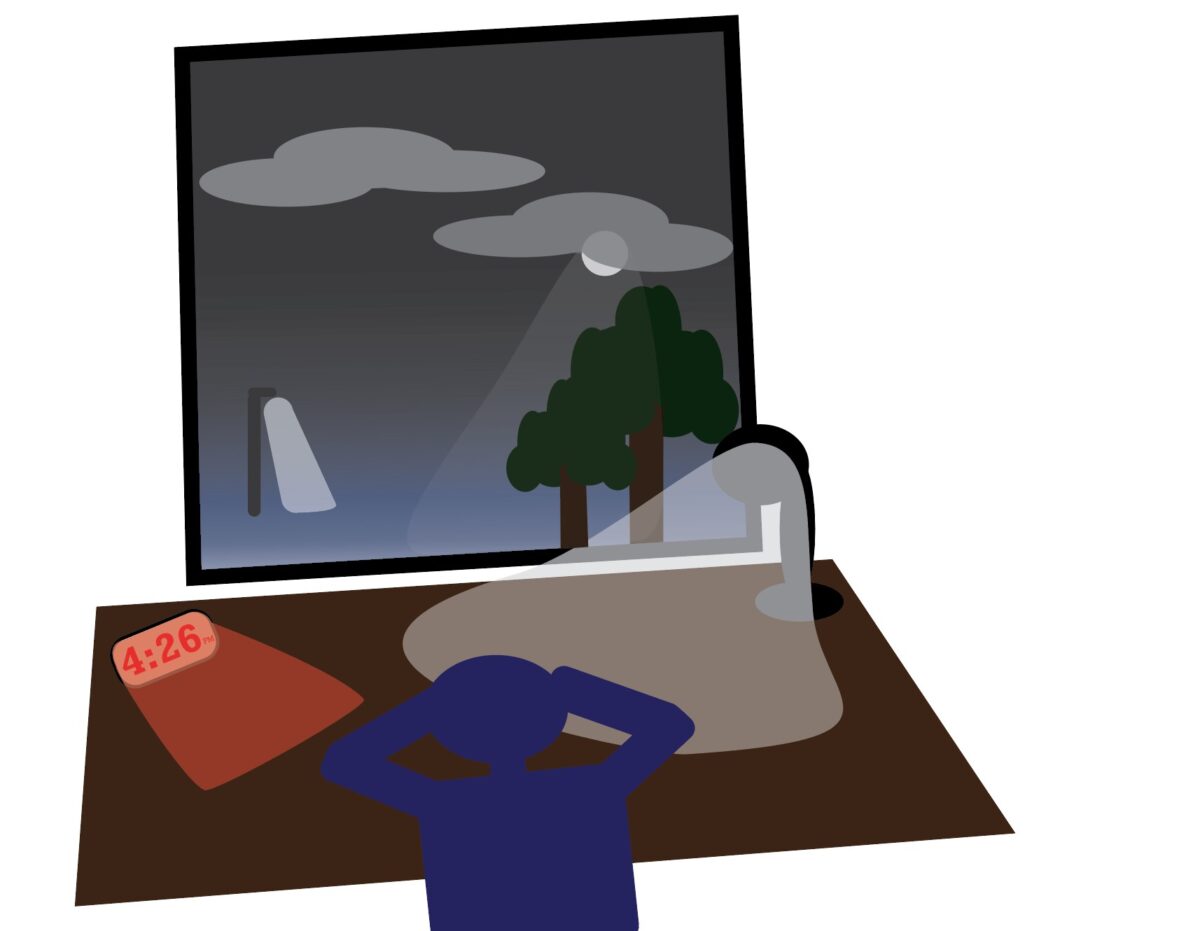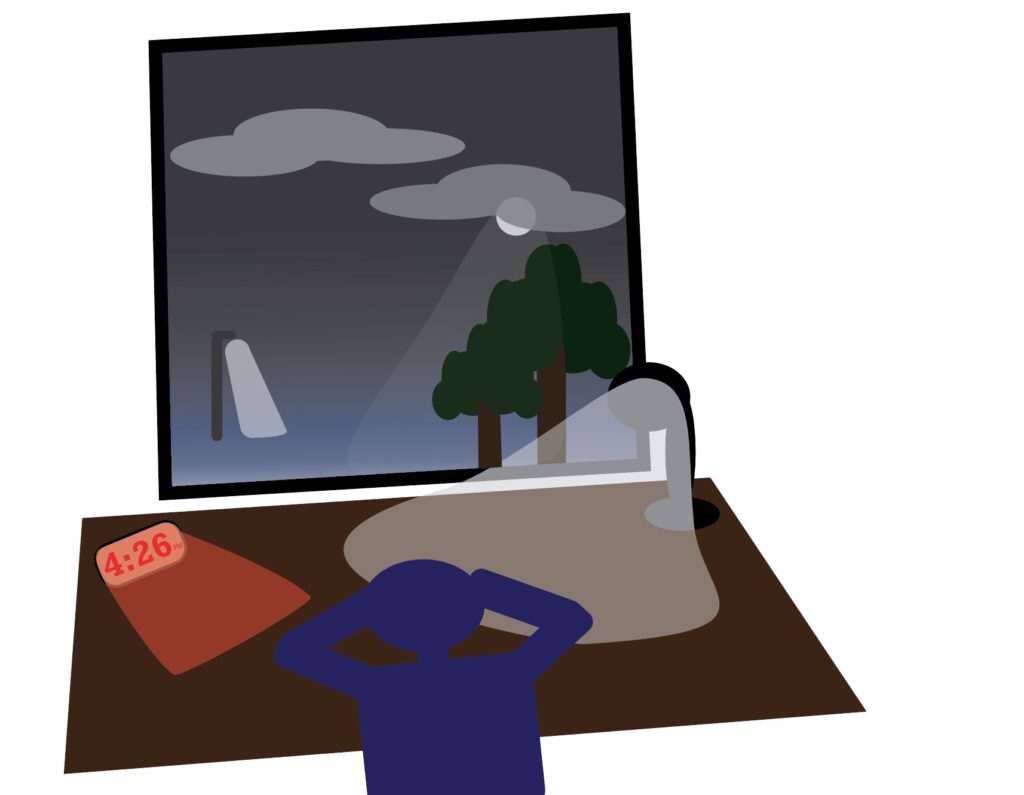
Caitlin Herz | Features Editor | cherz@mail.smcvt.edu

As temperatures drop and daylight hours get shorter, some St. Michael’s College students experience Seasonal Affective Disorder (SAD), a type of depression triggered by seasonal changes.
Claire Barone, ’26, double majoring in environmental studies and art & design, said she feels “sluggish” during the colder months, but spends a lot of time outdoors to combat this.
“When I go skiing I feel like I get such a rush of natural serotonin, I feel the same way about hiking,” Barone said.
Barone said the combination of being in the sun while also getting physical exercise brings her a lot of joy and makes the bitter winter in Vermont more fun.
Dr. Howard E. Lewine, Chief Medical Editor at Harvard Health Publishing, said college students need to take full advantage of the sun during winter.
He said the symptoms of SAD are not very different from other types of major depression.
One of the main symptoms of SAD is “not finding the same satisfaction in activities that you once enjoyed,” Lewine said.
Lewine also said SAD correlates with oversleeping and overeating, although the effects vary from person to person. Some people lose their appetite and end up undereating instead, Lewine said.
“When it’s darker, there is more melatonin that is naturally released by the brain,” he said.
Melatonin is a hormone your brain produces in response to darkness. It helps with the timing of your circadian rhythm, or 24-hour internal clock, and with sleep, Lewine said.
Lewine said he notices a correlation between winter and hibernation within humans, he said that we get the instinct to rest more and sometimes even self-isolate during the winter months.
Lexi Roux, ’26, double majoring in environmental science and chemistry, has strategies she uses to help maintain her mental health as the temperatures drop.
Roux said in the winter months she tries to make her dorm a very inviting place, with ambient lighting and other ways to brighten her day.
She always makes sure she gets some natural light and takes Vitamin D supplements regularly during the winter.
Roux also said she gets outside for natural sunlight whenever she can. “Even just feeling the sun on my skin can improve my state of mind,” she said.
Kathy Butts, director of counseling at Bergeron Wellness Center, said there are full-spectrum UV lamps available in the library. She says the lamps are proven to help with symptoms of SAD.
They mimic the effects of actual sunlight, helping students study during hours that may be irregular for them, said Butts.
When asked about who is more prone to suffering SAD on campus, Butts said, “Because first-year students are transitioning and navigating life at college for the first time, they might be at a slightly higher risk than the rest of the student population.”
Butts said well-being is especially important to think about in the colder months, adding that making time for hobbies and activities that improve mental health can help fight depression.
Activities through Be Well, the outreach arm of Bergeron Wellness Center, and yoga in the International Commons are all programs St. Michael’s College offers to help students combat the symptoms of Seasonal Affective Disorder, she said.
“Anything that contributes to overall well-being is going to help SAD symptoms, and none of us can take our mental health for granted,” Butts said.

